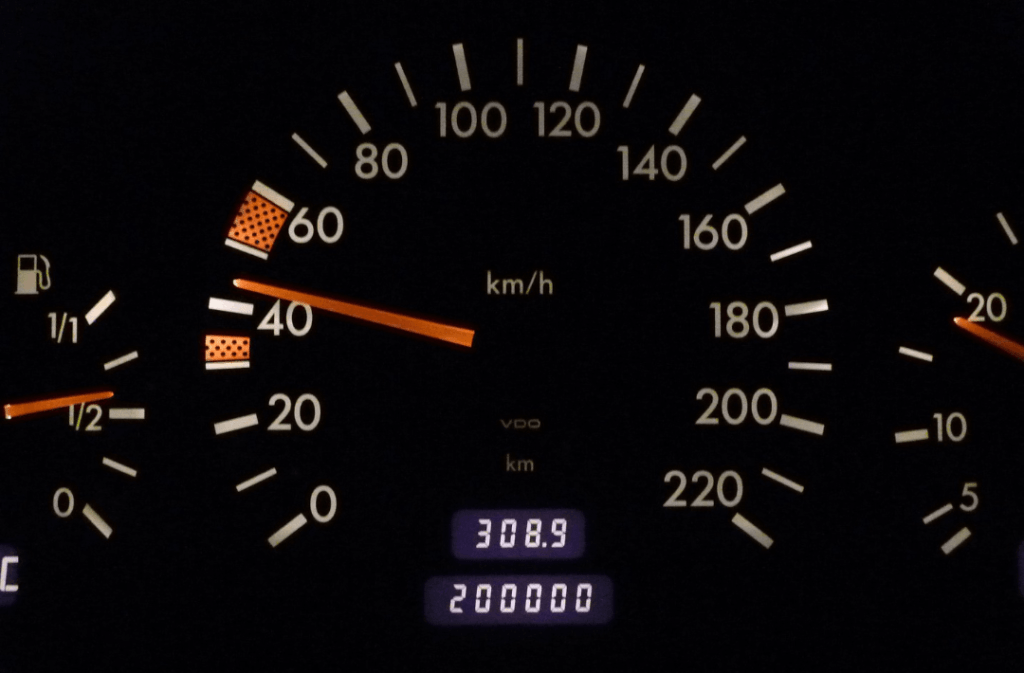Introduction to Truck Resale and Trade-In Values
When it comes to owning a truck, there’s more to consider than just the joy of hitting the open road and conquering rugged terrains. Understanding the concept of truck resale and trade-in values is crucial for any truck owner or enthusiast. It not only helps you make informed decisions when buying or selling a truck, but it also allows you to evaluate your investment and financial planning effectively.
Understanding Resale and Trade-In Values

Truck owners often underestimate the significance of knowing their vehicle’s resale value until they decide to part ways with it. Whether you plan on upgrading to a newer model or need a change, knowing how much your truck is worth in the current market can save you from financial surprises. Moreover, comprehending trade-in values becomes essential if you’re looking to replace your existing truck with a new one.
Dealerships often offer trade-in options that allow you to use your old vehicle’s value as credit toward purchasing a new one. Understanding the trade-in value ensures that you negotiate fair deals and get the most out of your current asset.
Factors influencing truck resale and trade-in values
The world of trucks is diverse, ranging from popular brands like Ford, Chevrolet, and Ram to lesser-known manufacturers carving their niche in the market. Brand reputation plays a significant role in determining resale value.
Established brands tend to hold their value better due to their reliability, durability, and widespread popularity among buyers. In addition to brand reputation, factors such as vehicle condition and maintenance history also impact resale values significantly.
A well-maintained truck with regular service records will generally command higher prices compared to one with incomplete records or signs of neglect. Similarly, accidents or damages can decrease the value considerably unless properly repaired and documented.
Mileage and usage patterns are equally important factors influencing resale values. Trucks primarily designed for heavy towing or off-road adventures tend to accumulate more wear and tear, potentially affecting their value.
Striking a balance between usage and mileage is crucial to maintaining optimal resale value in the long run. Market demand and trends play a vital role in determining truck resale values.
Popular truck models with high demand tend to maintain their value better over time, while less popular models may experience more significant depreciation. Keeping an eye on market trends allows you to anticipate fluctuations in resale values and make informed decisions about selling or trading in your truck at the right time.
Factors Affecting Truck Resale Values
Brand Reputation and Popularity
When it comes to truck resale values, brand reputation and popularity play a significant role. Certain truck brands have established themselves as reliable and durable vehicles over the years, commanding higher resale prices. Brands like Ford, Chevrolet, and Toyota are well-known for their robust trucks that hold their value exceptionally well.
These brands have cultivated a loyal customer base, resulting in high demand for their used trucks in the market. So, if you own a truck from one of these reputable brands, you can expect a higher resale value than lesser-known brands.
Top Truck Brands with High Resale Value
Among the top truck brands known for retaining their value exceptionally well is Toyota. Their Tacoma and Tundra models are prized for their reliability and longevity, which translates into strong resale values. The Ford F-150 also holds its value impressively due to its widespread popularity among buyers seeking both workhorse capability and comfortable daily driving.
Chevrolet’s Silverado series is another contender known for maintaining strong resale values. These top-performing brands consistently deliver trucks that withstand the test of time and retain their appeal in the used market.
Lesser-Known Brands
While popular truck brands generally fare well in terms of resale value, lesser-known or niche-market brands may experience more significant depreciation. This is primarily because these brands often lack the wide recognition and established reputation of larger manufacturers. For example, some smaller manufacturers specializing in off-road or luxury trucks might not command the same demand as mainstream options like Ford or Chevrolet when it comes to used vehicles.
Buyers tend to be cautious about purchasing lesser-known brand trucks due to concerns about maintenance costs or finding replacement parts easily. As a result, trucks from these niche manufacturers might experience more substantial depreciation over time compared to their counterparts from more prominent brands.
Vehicle Condition and Maintenance History
Another crucial factor influencing truck resale values is the overall condition of the vehicle and its maintenance history. Trucks that have been well-maintained, with regular servicing performed by authorized dealerships or certified mechanics, tend to retain their value better.
Proper maintenance ensures that all components are in good working order, reducing the chances of mechanical issues arising for potential buyers. On the other hand, trucks with a sketchy maintenance history or a lack thereof can raise concerns among buyers and therefore negatively impact resale values.
Impact of Regular Maintenance on Resale Value
Regular maintenance contributes significantly to the preservation of truck resale value. By following manufacturer-recommended service schedules, you demonstrate responsible ownership and assure potential buyers that your truck has been well cared for.
Routine oil changes, fluid top-ups, tire rotations, and timely replacements of filters or brake pads contribute to the long-term health of your vehicle and enhance its appeal when it’s time to sell. Buyers are often willing to pay more for a truck with documented service records showing consistent upkeep.
How Accidents or Damages Affect Resale Value
Accidents and damages can have a substantial negative impact on a truck’s resale value. Even if repairs have been made following an accident, potential buyers may be wary about hidden damage or future reliability issues.
Additionally, even minor cosmetic damages such as dents or scratches can deter buyers looking for trucks in pristine condition. When selling or trading in your truck, it is crucial to disclose any accidents or damages transparently while providing documentation on repairs carried out by reputable professionals.
Mileage and Usage Patterns
Mileage is another critical factor impacting a truck’s resale value. Generally speaking, lower mileage translates into higher values since lower mileage indicates less wear and tear on essential components like the engine and transmission.
However, it’s important to note that excessively low mileage can also raise concerns as trucks designed for heavy-duty work may suffer adverse effects from prolonged periods of inactivity. There exists a sweet spot for optimal resale value, where the truck has been driven enough to demonstrate reliability and regular use but not too much as to cause excessive wear.
Furthermore, usage patterns, such as heavy towing or off-road adventures, can also affect resale value. Trucks subjected to intense usage may experience accelerated wear on specific components and thus see a reduction in their resale value.
Average Mileage Thresholds for Optimal Resale Value

While mileage thresholds for optimal resale value can vary depending on factors like brand and model, it is generally suggested that trucks with annual mileages between 10,000 and 15,000 miles strike the right balance. This range typically provides enough usage to maintain mechanical health while avoiding excessive depreciation due to high mileage. However, it’s worth noting that well-maintained trucks with slightly higher mileage can still command good resale values if they have strong documentation of regular servicing and maintenance.
The Impact of Heavy Towing or Off-road Usage on Value

Trucks designed for towing or off-road adventures are built to withstand more demanding conditions compared to standard models. While these trucks excel in their intended purposes, it’s essential to recognize that heavy towing or extensive off-road usage can take a toll on various components over time. Components like suspension systems, brakes, or transmissions might undergo more stress than what would be considered typical daily driving conditions.
Consequently, buyers interested in used trucks primarily for recreational activities may be more cautious when considering vehicles with histories of arduous towing or extreme off-roading experiences. Thus, such specialized usage patterns might lead to lower resale values due to increased wear and potential future maintenance costs.
Market Demand and Trends
The market demand for specific truck models heavily influences their resale values. Popular truck models that cater to a wide range of buyers tend to hold their value better than niche-market options with limited demand.
Trucks with high market demand create competition among buyers, resulting in higher resale prices. Factors like styling, technology features, fuel efficiency, and overall reputation contribute to the demand for particular models.
Additionally, market trends can influence resale values over time. For instance, as more consumers embrace electric or hybrid trucks in the future, traditional gasoline-powered trucks may experience a decline in demand and subsequent depreciation.
Popular Truck Models with High Demand in the Market
Several truck models consistently enjoy strong market demand and thus maintain impressive resale values. The Ford F-150 is widely regarded as one of the most popular trucks in America due to its versatility and broad range of configurations.
Similarly, the Chevrolet Silverado 1500 and Ram 1500 are perennial favorites among truck enthusiasts for their robust performance and comfortable interiors. In recent years, midsize trucks like the Toyota Tacoma and Chevrolet Colorado have gained traction due to their practicality as urban-friendly daily drivers while still offering respectable towing capacity when needed.
How Market Trends Influence Resale Values Over Time
Market trends significantly impact resale values over time as consumer preferences evolve and new technologies emerge. For example, as more emphasis is placed on fuel efficiency and environmental sustainability, trucks equipped with advanced hybrid or electric powertrains may see increased demand in the future while traditional gasoline-powered options might experience a decline. Similarly, technological advancements such as autonomous driving capabilities or enhanced connectivity features can influence consumer preference for newer models equipped with these cutting-edge technologies.
As a result, older trucks lacking these contemporary features may witness depreciation rates influenced by evolving market trends. Truck resale values are influenced by an array of factors including brand reputation/popularity, vehicle condition/maintenance history, mileage/usage patterns; as well as market demands/trends.
Understanding these factors can help truck owners make informed decisions when it comes to buying, maintaining, and eventually selling their trucks. Whether it’s opting for a well-established brand or investing in regular maintenance, being mindful of these considerations can maximize resale values and ensure a rewarding ownership experience.
Trade-In Values: Negotiating the Best Deal

Knowing Your Truck’s Worth
Before diving into negotiations with dealerships, it is crucial to have a solid understanding of your truck’s current market value. This knowledge will empower you to negotiate from a position of strength and ensure you don’t settle for an unfair offer. Online valuation tools are incredibly handy in providing accurate estimates of your truck’s worth.
Websites like Kelley Blue Book (KBB) and Edmunds offer comprehensive databases that factor in the make, model, year, mileage, condition, and optional features of your vehicle to calculate its value. By inputting these details correctly into their systems, you can obtain an estimate that aligns with the current market conditions.
Considering Local Market Conditions
While online tools provide valuable insights into pricing trends on a national level, it is essential to take local market conditions into account when negotiating trade-in values. Factors such as regional demand for specific types of trucks and the availability of similar makes and models in your area can influence the final offer you receive from dealerships. To gain a better understanding of these dynamics, research local listings for trucks similar to yours and note their prices.
Additionally, consider reaching out to multiple dealerships in your vicinity to gauge their interest in buying your truck. This way, you can compare offers and leverage any discrepancies during negotiations for a better deal.
Preparing Your Truck for Trade-in
When it comes to maximizing the trade-in value of your truck, presentation matters more than you might think. Before taking it to the dealership for appraisal, invest some time in cleaning both the exterior and interior thoroughly.
A shiny exterior with no visible dirt or scratches gives the impression that you have taken good care of your vehicle – potentially increasing its perceived value. On top of that, consider scheduling a detailing service to restore that new car’s shine.
In addition to cleanliness, addressing minor repairs can also play a significant role in enhancing trade-in value. Fixing small dents, replacing worn-out parts like windshield wipers or air filters, and ensuring all lights are in good working order are simple steps that demonstrate your commitment to maintaining the truck’s overall condition.
Documenting Maintenance Records
When negotiating a trade-in deal, providing documentation of your truck’s maintenance history is an effective way to instill confidence in the dealership. Keep records of any routine services, repairs, and upgrades performed on your truck throughout its life. This includes oil changes, tire rotations, brake replacements, and any major repairs or modifications.
These records act as evidence of responsible ownership and allow the dealership to assess the vehicle’s overall health accurately. By demonstrating that you have diligently maintained your truck according to manufacturer recommendations or guidelines from certified technicians, you increase its perceived value and potentially secure a better trade-in offer.
Negotiating with Dealerships
Understanding the profit margins at dealerships can give you an edge during negotiations for your trade-in deal. Car dealerships typically make money by selling used vehicles at retail prices after acquiring them at wholesale prices during trade-ins. Knowing this allows you to approach negotiations strategically.
Start by holding back information about your intention to trade in until after agreeing on the purchase price of the new vehicle you desire from their inventory. Separating these discussions helps ensure that negotiations for both aspects remain fair and transparent.
To further increase your chances of getting a higher trade-in offer from dealerships, consider employing some proven tactics. Firstly, be confident but realistic when presenting your expectations for the value of your truck based on market research and online valuation tools’ estimates.
Secondly, be open-minded about exploring different dealerships or considering private sales if their offers fall short of what you deem reasonable. Remember that negotiations are a process of give and take, so be prepared to compromise.
If the dealership isn’t meeting your desired trade-in value, inquire about other incentives they can offer, such as extended warranties, free maintenance services, or discounts on accessories for your new truck. By exploring different options and leveraging your knowledge about trade-in values and dealership profit margins, you increase the likelihood of securing an advantageous deal.
Additional Considerations for Truck Resale and Trade-Ins
Aftermarket Modifications
When it comes to aftermarket modifications, they can have a significant impact on the resale and trade-in value of your truck. However, not all mods are created equal. Some modifications can increase the value of your truck, while others may end up decreasing it.
Popular modifications that are known to increase value include things like upgraded suspension systems, performance enhancements, and high-quality audio systems. These additions can make your truck more desirable to potential buyers or dealerships.
On the other hand, certain modifications may decrease the resale or trade-in value of your truck. For example, excessive cosmetic changes like gaudy paint jobs or unconventional body kits might limit the appeal of your vehicle to a niche market.
Additionally, alterations made to the drivetrain or engine that compromise reliability or fuel efficiency could hurt its worth. It’s essential to carefully consider any aftermarket modifications you choose and assess their potential impact on resale value before making any decisions.
Financing Options When Buying A New Truck After
If you’re considering trading in your current truck for a new one after evaluating its resale value and trade-in offer, understanding financing options is crucial. Many dealerships offer various financing plans tailored specifically for purchasing new trucks.
These options often include competitive interest rates and flexible repayment terms that can help ease the financial burden of buying a new vehicle. To ensure you’re securing the best financing option available, it’s wise to shop around at different dealerships and financial institutions.
Compare offers from multiple sources before deciding so you can leverage competition to secure favorable terms. Remember to take into account factors such as interest rates, loan duration, hidden fees, and any additional incentives offered by different lenders. Conclusion:
When it comes to truck resale and trade-ins, understanding the various factors that influence value is key. Factors such as brand reputation, vehicle condition, mileage, and market demand all play a role in determining the worth of your truck. Additionally, aftermarket modifications can either enhance or detract from its value.
When considering trading in your truck for a new one, exploring different financing options is essential. This allows you to make an informed decision that suits your financial needs and ensures a smooth transition into your new vehicle.
By being knowledgeable about these aspects of the resale and trade-in process, you can maximize the value of your truck and make a well-informed decision when it’s time for an upgrade. So keep these considerations in mind, take care of your truck, and enjoy the journey ahead with confidence!











